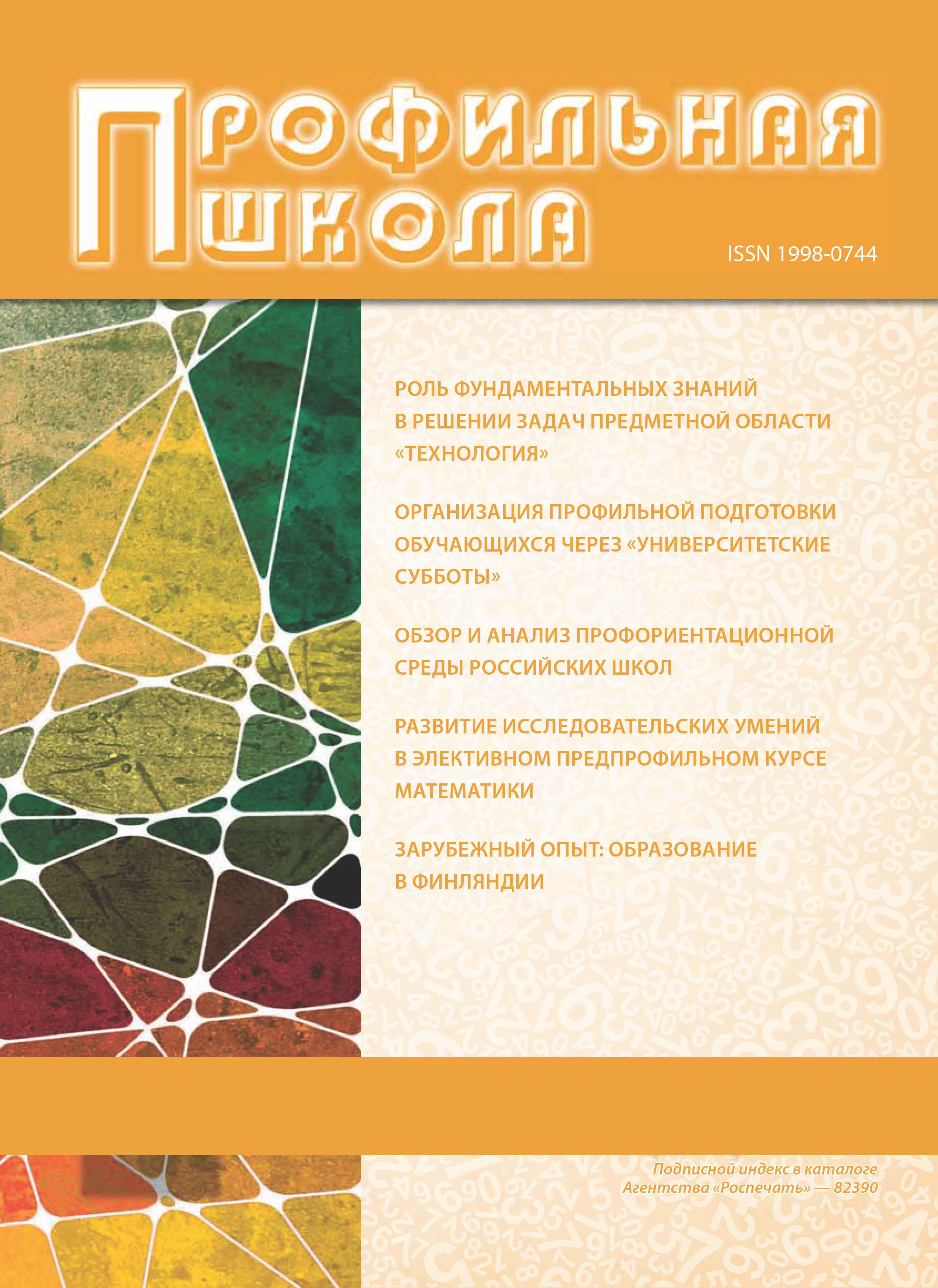Russian Federation
The author has developed the method to classify skills, underpinning mathematical capabilities development among the 5th–6th-classes students, which facilitate studying mathematics for the numeric line. The classification consists of two blocks, separately for basic and for advanced study, namely: familiarity with the basic skills and methods for general learning activities; familiarity with methods of creative learning activity; operating with decimal numeric system, with numerical and literal expressions, with common fractions, decimal fractions, positive and negative numbers, percents, arithmetic mean), having skills to identify divisibility and skills to solve equations.
classification, skills, mathematical capabilities, numerical line, learning activity, operation, decimal numerical system, numerical and literal expressions, common and decimal fractions, percents, arithmetic mean, skills to resolve equations.
В современной школе задача формирования и развития у учащихся математических способностей является наиболее актуальной. В рамках ФГОС второго поколения «знание следует понимать не в его традиционном смысле, как факт, информацию, а как деятельность и ее результат» [15, с. 3], а деятельность как известно состоит из конкретных действий. По выражению американского психолога Ги Лефрансуа «действие — фактическое поведение» живого существа [6, с. 92].
«Умение знание в действии. Оно проявляется в овладении совокупностью определенных операций — способов осуществления действия…» [11, с. 130], при этом умения (практические и умственные) создают возможность выполнять действия как в стандартных, так и нестандартных ситуациях. Как следует из исследований психологов (А.Г. Ковалев, С.Л. Рубинштейн, Ю.А. Самарин и др.) существует тесная и неразрывная связь способностей со знаниями, умениями, навыками. С одной стороны, способности зависят от знаний, умений и навыков (в процессе их приобретения и развиваются способности); с другой стороны, знания, умения и навыки зависят от способностей (процесс приобретения первых и формирования последующих зависит наряду с другими условиями от индивидуальных психологических особенностей учащихся).
Закономерно, «в процессе обучения необходим индивидуальный подход к учащимся, направленный на развитие практической умелости у одних и развитие способностей к усвоению теоретических знаний других» [3, с. 55].
1. Asmolov A.G. Programma razvitiya universal´nykh uchebnykh deystviy: struktura, soderzhanie, ozhidaemye rezul´taty [Development Programme universal learning activities: structure, content, expected results]. Available at: http://standart.edu.ru.
2. Visitaeva M.B. Klassifikatsiya umeniy, sposobstvuyushchikh formirovaniyu matematicheskikh sposobnostey uchashchikhsya 5-6 klassov pri izuchenii geometricheskogo materiala [Classification skills, contributing to the formation of mathematical abilities of pupils of 5-6 classes in the study of geometrical material]. Profil´naya shkola [Profile school]. Moscow, 2013. V. 1, I. 5, pp. 54-60. DOI:https://doi.org/10.12737/1401. EDN: https://elibrary.ru/RYRJUH
3. Zykova V.I. Formirovanie prakticheskikh umeniy na urokakh geometrii [Formation of practical skills in the classroom geometry]. Moscow, APN RSFSR Publ, 1963. 199 p.
4. Kolyagin Yu. M. Zadachi v obuchenii matematike: Matematicheskie zadachi kak sredstvo obucheniya i razvitiya uchashchikhsya [Challenges in teaching mathematics: Mathematical problems as a means of learning and development of students]. Part 1. Moscow, Prosveshchenie Publ, 1977. 110 p.
5. Krutetskiy V.A. Psikhologiya matematicheskikh sposobnostey shkol´nikov [The psychology of mathematical abilities of students]. Moscow, Prosveshchenie Publ., 1968. 431 p.
6. Lefransua Gi. Prikladnaya pedagogicheskaya psikhologiya [Applied Educational Psychology]. St. Petersburg, PRAYM - EVRO-ZNAK Publ., 2005. 416 p.
7. Vilenkin N.Ya., Zhokhov V.I., Chesnokov A.S. Matematika 5 kl. [Mathematics 5 grade], Moscow, Mnemozina Publ., 2002. 384 p.
8. Vilenkin N.Ya. Matematika: 6 kl. [Mathematics: 6 grade]. Moscow, Mnemozina Publ., 2002. 256 p.
9. Muravin G.K. Matematika 5 kl. [Mathematics 5 grade]. Moscow, Drofa Publ., 2007. 315 p.
10. Muravin G.K. Matematika 6 kl. [Mathematics 6 grade]. Moscow, Drofa Publ., 2008. 319 p.
11. Podlasyy I.P. Pedagogika nachal´noy shkoly [Pedagogy Elementary School]. Moscow, Vlados Publ., 2000. 399 p.
12. Primernye programmy osnovnogo obshchego obrazovaniya. Matematika 5-9 klassy [Exemplary programs of general education. Mathematics Grades 5-9]. Moscow, Prosveshchenie Publ., 2010. 110 p.
13. Sarantsev G.I. Obuchenie matematicheskim dokazatel´stvam i oproverzheniyam v shkole [Teaching mathematical proofs and refutations of the school]. Moscow, Vlados Publ., 2005. 183 p. EDN: https://elibrary.ru/QUGQER
14. Sarantsev G.I. Uprazhneniya v buchenii matematike [Exercises in Buchan mathematics]. Moscow, Prosveshchenie Publ., 2005. 255 p.
15. Federal´nyy gosudarstvennyy obrazovatel´nyy standart osnovnogo obshchego obrazovaniya (Utverzhden prikazom Ministerstva obrazovaniya i nauki RF ot 17.12.2010 g. № 1897) [Federal state educational standard of general education (Approved by the Ministry of Education and Science of the Russian Federation dated 17.12.2010 № 1897)] Available at: http://www.standart.edu.ru/






